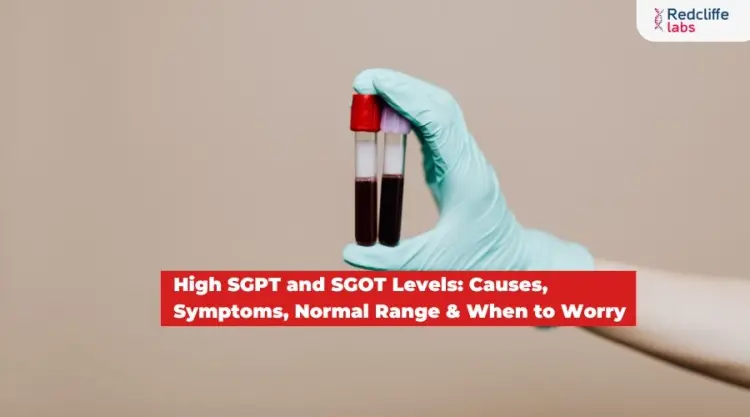Blood
Unlock special
discount on
this package
Login to Unlock 🔓
NABL Accredited lab*

Booking Benefits Unlocked Worth FREE 799

Report Consultation

Diet Plan
*Available once your report is generated.
At Redcliffe Labs, we have a single goal: to give India its right to quality diagnostics.
Customers served
Tests Processed Everyday
Cities
Collection Centres
World Class In-house Labs
Home Collection Experts
1 Test Parameters
Chloride
1 PARAMETER INCLUDED
1 PARAMETER INCLUDED
- Chloride
Top Booked Health Checkup Packages
Reports in 12 hours
|Parameters 94
Reports in 12 hours
|Parameters 89
Reports in 12 hours
|Parameters 96
Reports in 12 hours
|Parameters 96
Reports in 12 hours
|Parameters 90
Helps you know your test better
Q. What is a Chloride Test?
Q. What are the precautions required for the chloride Test?
Q. What does a chloride Test measure?
Q. What is the way to book a Chloride Test ?
Verified by Medical Expert

WRITTEN BY
Sheena Mehta

MEDICALLY REVIEWED BY
Dr. Pradeep Lodha
Table of Content
Introduction to Chloride Test
Have you ever felt an electric current in your body? It is because of electrolytes. Our body contains electrolytes that generate current. They are minerals that contain chloride. It helps control the amount of fluids and manage pH levels in the body. If you feel dehydrated or sick often, your chloride levels might be low. More often, the symptoms are common. They are usually what we experience and ignore, but this may be a sign of low or high chloride levels.
If you notice certain abnormal medical conditions, consult your doctor. They might suggest a chloride test. Get it from Redcliffe Labs. The Chloride test costs INR 139, making it affordable and efficient for every Indian.
Test Details in Brief
| Also known as | CI test, Serum chloride test |
| Purpose | To determine the chloride level |
| Preparation | Keep yourself hydrated |
| Diet | No fasting is required |
| Reports Within | 10 Hours |
| Cost | INR 139 |
What Does the Chloride Test Measure?
The chloride test measures the level of chloride present in the blood. Chlorides are electrolytes present in body fluids. The test helps understand the level of chlorides. Low levels of chloride indicate hypochloremia, and high levels indicate hyperchloremia. Several factors cause abnormal levels of chloride in blood, including;
- Dehydration
- Vomiting
- Certain medications
What Is A Chloride Test Used For?
Chloride levels can lead to an imbalance in blood fluid levels. A healthcare professional may use the chloride blood test to check the Comprehensive Metabolic Panel (CMP), Basic Metabolic Panel (BMP), and Electrolyte Panel. Along with a chloride blood test, a healthcare professional can conduct a chloride urine test.
Why Do Doctors Suggest The Chloride Test?
Many signs indicate an abnormal level of chloride present in the blood. The doctor may recommend taking the chloride blood test to check if the situation affects the body’s fluid balance. They may recommend testing to determine the body’s acid-base balance (pH) abnormalities. Other reasons why a doctor can suggest the chloride test-
- To know the cause of the symptoms. The test can diagnose acid-base disorder and note any health condition's presence.
- The serum chloride test can monitor any severe condition and assess the effectiveness of treatments for acid-base disorders and their believed causes.
Why Do You Need The Chloride Test?
Chlorides are electrolytes present in our body. They control our overall well-being. An abnormal level can create several diseases. The signs are common. It is a routine blood test. Your doctor may recommend the chloride blood as part of an electrolyte panel. Electrolyte panel test measures electrolytes and chloride, including potassium, sodium, and bicarbonate. They may also suggest a chloride test if they see symptoms of an imbalance, such as vomiting, diarrhea, weakness, dehydration, and breathing difficulty.
Signs and Symptoms of Chloride Test
An imbalance level of chloride can cause an electrolyte imbalance. Early detection can prevent major backlash. Here are certain signs and symptoms that indicate chloride imbalance:
- Vomiting
- Excessive thirst
- High blood pressure
- Weakness
- Excessive fatigue
- Breathing issues
- Diarrhea
- Certain Medications
- Estrogen
- Cortisone
- Nonsteroidal anti-inflammatory drugs (NSAIDs) such as ibuprofen and naproxen
- Ammonium chloride
If you see these symptoms and signs, seek a medical consultant and get yourself tested.
Preparation For The Chloride Test
The chloride test is a routine blood test. It was conducted to test the level of chloride present in the blood. There is no need for major preparation. But, before going for a chloride test, consider a few guidelines. Also, you can implement these guidelines to have a healthy and balanced life.
- Healthy Diet- Eat a healthy diet before the test. There is no need for diet, so it would be best to stick to your normal daily diet. Also, consult your healthcare provider to determine whether you need dietary instruction or fasting.
- Stay Hydrated- We often neglect to have enough water. However, having at least eight glasses of water before the test is essential. This is the minimum requirement to get the right results.
- Medication- If you are taking medications, prescription drugs, supplements, or herbal therapy, consult your doctor to determine whether to continue or stop the medication. Do as directed.
- Take proper sleep- Rest and sleep keep our bodies functioning properly. Have 6-8 hours of sleep before the test. It can help maintain the right reports. Further, take proper rest. Don’t overburden yourself.
- Avoid Excess Exercise- If you are a gym freak, avoid excessive exercise before the test. It can lead to severe muscle injury or body imbalance. It is better to perform the minimum exercise and refrain from tiring.
- Be stress-free- Tests can put you under stress. This is a normal routine blood test, so avoid taking too much stress. Try to keep yourself calm and composed. Stress can also affect health reports.
- Clear your doubts with Your Doctor- You must have many doubts and questions about the test, reports, and procedure. It is better to clear them with your doctor before the test. It ensures clarity and peace of mind and prevents the dysfunction of health reports.
These are some basic guidelines that, once implemented, can prevent irregularity in reports. Further, consult your doctor and take advice for better results.
The procedure of The Chloride Test
A routine chloride blood test is performed to check the chloride level. To get started, book the ‘chloride test’ from our website or mobile app (available on both Play Store and App Store). After booking the test, our phlebotomist will come to your place to collect samples.
- Our phlebotomist will ask you to make yourself comfortable. Choose a position and place to proceed with the chloride test.
- They will tie a band around your arm to detect a vein for collecting blood samples.
- After finding the accurate vein, they will clean the site with an antiseptic. This clears the site.
- They will insert a sterile syringe into the vein to collect the required blood.
- Our phlebotomist will carefully take out the syringe. This might create a sensation of a pinch.
- They will put a cotton ball on the punctured area to prevent blood loss.
- Once the collection process is done, they will transfer blood into a container.
- They will label the container with your details and send it to the laboratory for checking.
- After collecting and transferring the blood samples, you will receive your reports in 10 hours.
This is a simple process that our phlebotomist will follow. They are professionals who will ensure a smooth testing process.
Risk And Complications of The Chloride Test
The test has no major risk. However, there can be these potential risks that you might get:
- Infection (if contaminated)
- Skin infection
- Excessive blood loss
- Fainting
- Weakness
- Fatigue
- Hematoma (blood accumulation beneath your skin)
What Does The Chloride Test Results Indicate?
The chloride test results showcase the level of chloride present in our blood. The normal chloride range is between 96 and 106 milliequivalents per liter of blood (mEd/L). You can be relieved if the range in reports is between the stated number. But, if the number is above or below, that indicates an abnormality in the chloride level.
If your chlorine level is low, it is called hypochloremia; if it is high, it is hyperchloremia. Common symptoms can help you determine if the level is low or high.
Symptoms of high chloride level (hypochloremia)
- Glaucoma medicines
- Bromide poisoning
- Severe dehydration
- Respiratory alkalosis
- Metabolic or rental acidosis
- Addison disease
- Diarrhea
- Kidney disease
- Lactic acidosis
- Rental tubular acidosis (distal)
- Rental tubular acidosis (proximal)
- Ureteral diversion
- Salicylate toxicity
- Methanol poisoning
- ethylene glycol poisoning
- Ketoacidosis
- Carbonic anhydrase inhibitors
Symptoms of low chloride level (hypochloremia)
- Dehydration
- Excessive vomiting
- Heart failure
- Severe sweating
- Respiratory acidosis
- Addison’s disease
- Metabolic alkalosis
- Cushing syndrome
- Congestive heart failure
- Burns
- Bartter syndrome
- Vomiting
- Syndrome of inappropriate diuretic hormone secretion
- Hyperaldosteronism
Every lab uses different equipment, which can show different results. The results may differ from lab to lab. To prevent further complications with results, get yourself tested at Redcliffe Labs. We are NABL-accredited and ISO-certified, ensuring accurate test results. We use the latest equipment to get the right results for you.
What To Do After Receiving Test Results?
- After receiving the test results, hand them over to your healthcare provider.
- They will proceed with treatment depending on the high or low chloride levels.
- Make sure you inform your doctor if you are taking any medicine or prescription drugs.
- Get into medical intervention by finding the right solution for heart, kidney, or liver disease.
- Avoid drugs or medicines that can lead to any medical illness.
- Remember to follow your doctor’s recommended treatment.
Who Should Take The Chloride Test?
One of the core reasons is when your doctor recommends you take the chloride blood test. However, if you see these signs, get yourself tested.
- Frequent vomiting
- Diarrhea
- Excessive dehydration
- Trouble in breathing
- Chronic weakness
Chloride Test Price At Redcliffe Labs
The chloride test price at Redcliffe Labs is just INR 139. We believe in affordability and accessibility. We offer 3600+ tests at a reasonable price. In a world where every lab provides a fairly high price, we at Redcliffe Labs prioritize your health, making test rates affordable, sensible, and assessable for every Indian citizen. Redcliffe Labs focuses on providing timely and accurate test reports. After sample collection, you will receive your reports within 10 hours.
Chloride Test Cost in Different Cities - Redcliffe Labs

| City Name | Discounted Price |
| Delhi | ₹139 |
| Ahmedabad | ₹139 |
| Mumbai | ₹139 |
| Bangalore | ₹139 |
| Noida | ₹139 |
| Pune | ₹139 |
| Lucknow | ₹139 |
| Hyderabad | ₹139 |
| Chennai | ₹139 |
| Gurgaon | ₹139 |
| Jaipur | ₹139 |
| Faridabad | ₹139 |
| Indore | ₹139 |
| Patna | ₹139 |
Note: We also offer Chloride Test PAN India. Please call the number 8988988787 to check the availability of our services in your area.
Check Your Chloride Level With Redcliffe Labs
If you see any symptoms, don’t leave them as they are. Consult your healthcare provider to know the cause, prevention, and treatment. At Redcliffe Labs, get a serum chloride test to detect the level of chloride. Don’t delay in testing your chloride levels. We offer over 3600 tests, 80 labs, and 2000+ collection centers in PAN India.
We aim to provide healthcare services at affordable rates, making diagnostics accessible and convenient for all. Over 50,000 doctors and lakhs of Indians trust us, assuring accurate and timely reports. Additionally, by choosing Redcliffe Labs, you prefer comfort, as you don’t have to go anywhere for the chloride test. Our professional team of phlebotomists will visit your place to collect samples. So, what are you waiting for? Book the chloride test from Redcliffe Labs today!
5 Simple Steps to Manage Your Health with Redcliffe Labs
Quick, Simple & Convenient; trusted care delivered to your doorstep.

Start Your Online Booking
Open the Redcliffe Labs website/app. Select the test or package and enter your details. Schedule the service for your preferred slot.

Live Tracking
Stay updated with real-time tracking for a smooth and timely home sample collection.

Sample Collection
Our certified experts ensure a smooth, hygienic, and fully compliant sample collection experience.

Doctor-Verified Smart Reports
Every report is clinically checked by expert doctors and shared with smart, actionable insights.

Your Health Journey Continues Post Reports
Consult with our expert medical team to get actionable insights to improve your health.
Nearby Labs(9)
Redcliffe Labs Noida

MC-5280
Redcliffe Collection Center
Redcliffe Collection Center
Redcliffe Collection Center
Redcliffe Collection Center
Redcliffe Collection Center
Redcliffe Collection Center
Redcliffe Collection Center
Redcliffe Collection Center
Frequently Asked Questions
What is the chloride test?
What is the price of a chloride test?
What is the chloride test for?
How to fix high chloride levels?
What happens if chloride is high?
What is a normal chloride level?
Does drinking water lower chloride levels?
How harmful is chloride?
Can stress cause high chloride levels?
Can I book a Chloride Test near me?
Can I book a home collection for a Chloride Test?
Health Articles & Blogs
My Health
Stay informed with our expert health articles and blogs. Explore comprehensive guides on diseases, nutrition, preventive care, and wellness tips to help you make better health decisions.
Why is PCOS Continuously Rising in Women?

10 Healthy Holi Recipes for Your Fitness Goals in 2026
Looking for healthy Holi recipes? Discover 10 festive dishes that support your fitness goals while keeping celebrations delicious.

Importance of Heart Health Before Pregnancy: Everything You Need to Know

Migraine Treatment at Home: Effective Ways to Relieve Migraines Naturally

High SGPT and SGOT Levels: Causes, Symptoms, Normal Range & When to Worry

Brain Hemorrhage Symptoms: Early Warning Signs, Types, Causes & When to Seek Emergency Care

What is SGPT in Blood Reports? Everything You Need to Know

Capsicum (Shimla Mirch) 101: Benefits, Nutritional Value, Uses and More
Explore My Health
